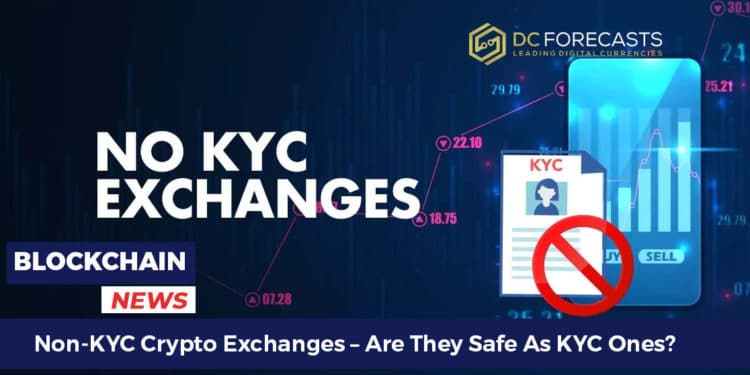Non-KYC crypto exchanges are regularly criticized by regulators as they would rather have the safety of anti-money laundering systems and know their clients with the ultimate goal of ensuring investor safety. But in this article, we will try to examine whether or not non-KYC crypto exchanges are as safe as KYC ones.
Many perceive the implementation of Know Your Customer (KYC) technologies in cryptocurrency as a disincentive to the Bitcoin (BTC) Standard, which has primarily encouraged anonymous peer-to-peer transactions.
Regulators, on the other hand, continue to promote KYC and anti-money laundering (AML) implementations as a method of ensuring investor safety and protection against financial crime.
While the majority of crypto exchanges have begun to embrace regulatory requirements in order to remain at the forefront of crypto’s mainstream development, investors may still choose crypto exchanges that encourage more anonymity by not enforcing KYC processes. But, as an investor, does choosing the latter entail sacrificing safety?
A Small Matter Of Trust
In most circumstances, anonymity works both ways. Owners of non-KYC (or non-compliant) crypto exchanges sometimes seek to remain anonymous in order to evade legal attention. As a result, investors must have a high level of confidence in the persons in charge of administering the exchange.
Decentralized exchanges, on the other hand, such as dYdX, employ trustless protocols to create a community-controlled trading platform. This, in turn, instills trust in investors despite the platform’s lack of a KYC obligation.
When trading on non-KYC platforms, monitoring the platform’s track record and the individuals operating it becomes critical.
It Will Remember Forever – A Blockchain Does Not Forget
While the suits who support traditional finance depict cryptocurrencies as a tool for money laundering, criminal cryptocurrency transactions have continuously decreased year over year. Despite the ease with which cryptocurrencies may be used without KYC authentication, a Chainalysis investigation found that just 0.15% of all crypto transactions in 2021 were associated with illegal activity.
Furthermore, irreversible blockchain records enable authorities to backtrack transaction owners, discouraging illicit actors from utilizing crypto — both KYC and non-KYC platforms — to support their behaviors.
Because of the permanent nature of blockchain, authorities all around the world have been able to track down scammers, fraudsters, and launderers of crimes done years ago.
No Keys, No Coins
One of the most serious problems when dealing with cryptocurrency exchanges is a loss of control over the assets. Cryptocurrencies kept on crypto exchanges need the exchange to get the private keys.
Using unvetted crypto exchanges that advertise no KYC requirements exposes investors to the possibility of losing their assets indefinitely. While both types of exchanges involve investors to hand over their crypto assets to other parties, KYC-compliant exchanges create higher trust among investors and authorities. Whether they use KYC or not, crypto investors are equally subject to external dangers like the owner’s purpose and unethical business practices, in addition to receiving no government support.
Furthermore, investing with a non-KYC crypto exchange has restrictions in terms of trading value, available tokens, and other services provided by the operator.
Check out today’s news.
DC Forecasts is a leader in many crypto news categories, striving for the highest journalistic standards and abiding by a strict set of editorial policies. If you are interested to offer your expertise or contribute to our news website, feel free to contact us at editor@dcforecasts.com
























Discussion about this post